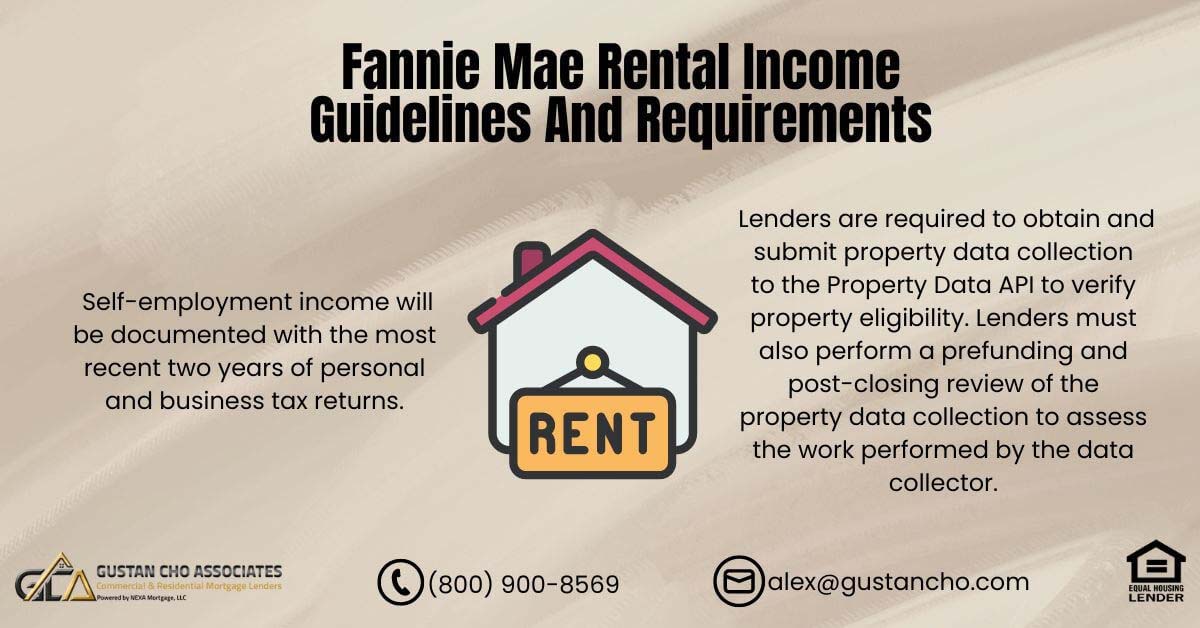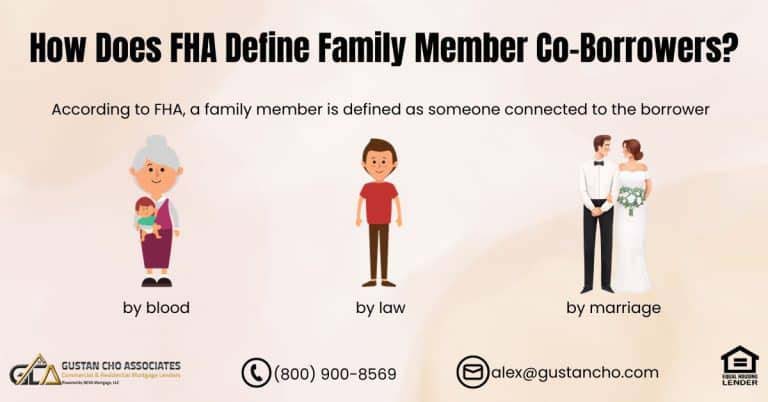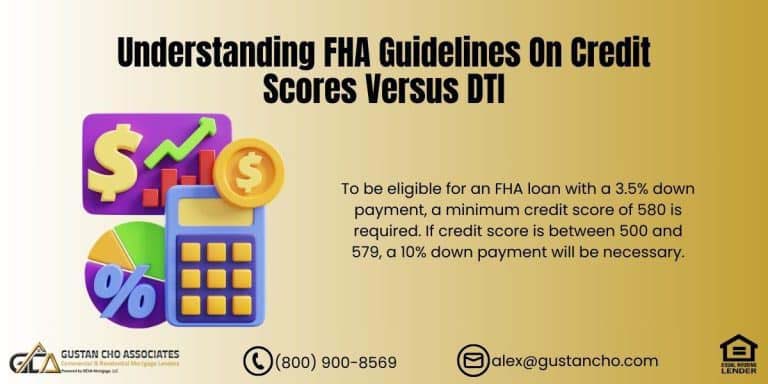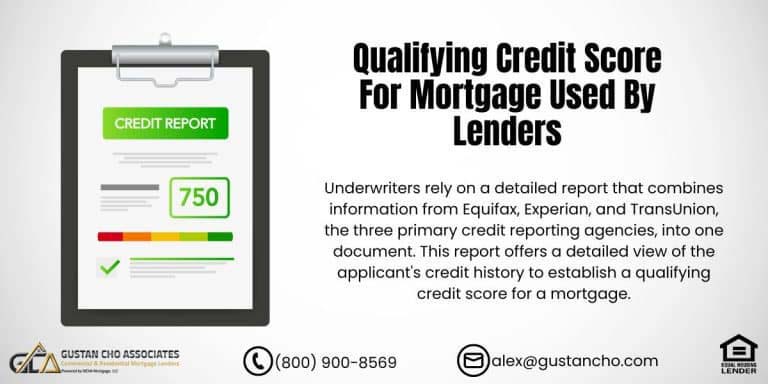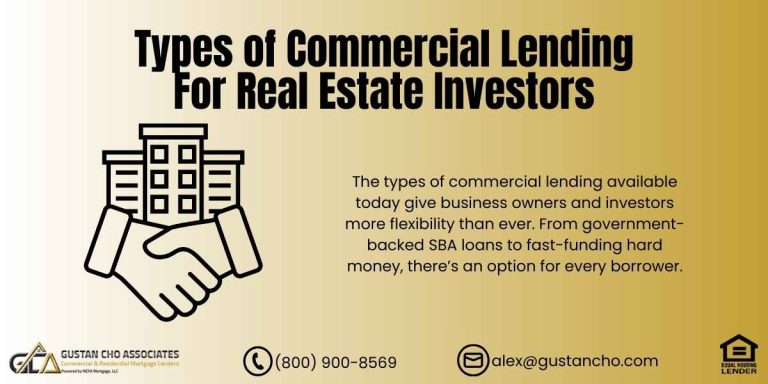This blog post will explore Fannie Mae rental income guidelines and lending requirements. We will focus on elucidating the latest updates in Fannie Mae’s rental income guidelines that have recently come into effect. Gustan Cho Associates is available to provide insights into the newly established rental income guidelines applicable to both investment properties and primary multi-family homes as stipulated by Fannie Mae.
Fannie Mae and Freddie Mac Rental Income Requirements
On October 4th, 2023, a recent announcement updated the Fannie Mae rental income guidelines for conventional investment property and multi-family primary mortgage products. Notably, Gustan Cho Associates maintains a policy of having no LENDER OVERLAYS on FHA, VA, USDA, or Conventional mortgages.
The impact of these guideline revisions extends to many individuals across the country. This blog aims to elaborate on the updated guidelines and their implications for mortgage qualifications, particularly focusing on the alterations concerning borrowers with less than one year of rental income.
New Updated Fannie Mae Rental Income On Rental Properties
Fannie Mae recently unveiled new criteria for assessing rental income eligibility, a move aimed at bolstering sustainable homeownership for individuals venturing into investment properties without a track record in rental property management. This shift is particularly relevant for borrowers acquiring two-to four-unit primary residences.
The overarching goal is to create a more secure lending environment by addressing potential risks, including occupancy fraud. Fannie Mae, guided by its mission to promote sustainable homeownership, underscores the importance of these changes in ensuring responsible lending practices and fostering a stable housing market.
These adjustments signify Fannie Mae’s commitment to adapting to evolving market dynamics while safeguarding the interests of borrowers and lenders. By refining the assessment of rental income, Fannie Mae aims to strike a balance that encourages responsible investment in real estate while mitigating risks associated with occupancy fraud.
This proactive approach aligns with their broader mission to support sustainable homeownership, emphasizing the organization’s dedication to fostering a housing market that is both accessible and resilient for a diverse range of borrowers.
What Are The New Changes Fannie Mae Rental Income
This new guideline has been updated to include changes to the following:
- This update will require the borrower to have a primary housing expense and at least a one-year history of property management experience to use the full amount of rental income towards qualifying. Otherwise, the amount may be limited.
- The Selling Guide requires that self-employment income be documented with the most recent two years of personal and business tax returns. When a loan is underwritten through DU, DU may determine that only one year of tax returns is required to document self-employed income.
- Policy on manufactured housing requires both the HUD Data Plate and HUD Certification Label information to be provided in the appraisal report along with photo exhibits, if available.
- The current policy requires lenders to obtain and submit property data collection to the Property Data API to verify property eligibility. Lenders must also perform a pre-funding and post-closing review of the property data collection to assess the work performed by the data collector.
How The New Fannie Mae Rental Income Guidelines Affect Borrowers With No Landlord Experience
Suppose a prospective borrower is currently in possession of a primary residence or is in the process of renting their current dwelling and happens to have accumulated less than one year of documented rental income or property management experience. In that case, this situation is particularly relevant within the context of Fannie Mae Rental Income guidelines.
In instances where an individual is already a homeowner or is currently engaged in a rental arrangement for their primary residence, the consideration of their eligibility for certain financial products, specifically those aligned with Fannie Mae Rental Income, hinges on the duration of their experience in generating rental income or managing properties.
If the borrower has amassed less than a year of such experience, this aspect becomes crucial in assessing their qualifications within Fannie Mae’s guidelines. It underscores the importance of documenting and substantiating the rental income or property management experience, as it directly influences the borrower’s ability to meet the specified criteria set forth by Fannie Mae.
Primary Home Rental Income Guidelines
In the context of Fannie Mae rental income, if you’re using your primary residence as a rental property, you are allowed to factor in an amount of rental income that doesn’t exceed the combined total of principal, interest, taxes, and insurance for that specific property. The borrower’s gross income calculation can include this additional rental income. This means you can consider the rental income to offset the mortgage payment when evaluating debt-to-income ratios. Still, any excess beyond the specified limit won’t be considered.
However, in the case of a four-unit property, it’s important to note that any surplus income generated from the additional units will not contribute to qualifying income. Fannie Mae guidelines restrict the inclusion of excess income from extra units in the qualification process, maintaining a clear distinction between the income used for the primary residence and any additional income from multi-unit properties.
Investment Property Rental Income Experience
Investment property: Utilizing positive rental income is restricted to offsetting the principal interest taxes and insurance for the property in question, mirroring the rule above. When a borrower is acquiring an investment property and is not presently residing in a primary residence with associated housing expenses (rent), any rental income from the subject property cannot be considered for qualification.
If you intend to purchase an investment property and currently lack a primary housing expense, the rental income from that property cannot be utilized for qualification purposes. It is crucial to note that this updated policy does not pertain to HomeReady loans that involve rental income from an accessory unit. For further details, please refer to our HOMEREADY BLOG.
When Does The New Fannie Mae Rental Income Guidelines Take Effect
Lenders are encouraged to implement these changes immediately but must do so for all loans with application dates on or after Jan. 1, 2024. For more information on this guideline change, Please see the Fannie Mae Selling Guide Announcement SEL-2023-09.
Setback For New Real Estate Investors
This guideline modification will impact prospective entrepreneurial investors interested in purchasing a primary residence with two to four units, provided they are not current homeowners or renters. The revised qualification process now requires individuals to qualify for the entire property without relying on potential future rental income. In contrast, the previous rule permitted the use of 75% of the fair market rents received to meet qualification criteria.
Other Options Versus Fannie Mae Rental Income Option For Real Estate Investors
The guidelines for mortgage products, including Fannie Mae Rental Income, are constantly evolving. Fannie Mae has recently undergone a significant change, a rarity in recent times. For those considering acquiring investment properties, we provide a range of loan programs customized to meet your specific needs. Let’s spotlight a couple of noteworthy products:
Fannie Mae Rental Income Versus Other Mortgage Options
Gustan Cho Associates always offers new mortgage products and updates you on mortgage guidelines. This was a major announcement from Fannie Mae. One that will impact many clients reaching out to us.
We receive phone calls about buying a 4-unit property, trying to be self-sustainable with rental income. This will change that process if you do not have a housing expense. Guidelines are ever-changing; please check our website often for breaking news.
We strive to update you on any changes surrounding conventional, FHA, VA, and USDA mortgages. For questions on this new guideline or clarification, please call Alex Carlucci at 800-900-8569 or email alex@gustancho.com. We look forward to hearing from you.
FAQ: Fannie Mae Rental Income Guidelines And Requirements
When were the recent updates to Fannie Mae’s rental income guidelines announced? The updates were announced on October 4th, 2023, impacting conventional investment property and multi-family primary mortgage products.
How do the changes affect mortgage qualifications, especially for borrowers with less than one year of rental income? The blog aims to elaborate on the implications of the updated guidelines for mortgage qualifications, specifically focusing on alterations related to borrowers with less than one year of rental income.
What is the goal behind Fannie Mae’s new criteria for assessing rental income eligibility? The goal is to bolster sustainable homeownership, especially for individuals entering investment properties without a track record in rental property management while addressing potential risks like occupancy fraud.
What key changes were introduced in the Fannie Mae rental income guidelines? The changes include requirements for a primary housing expense, at least one year of property management experience for full rental income qualification, and documentation of self-employment income with tax returns. The policy on manufactured housing and property data collection is also addressed.
How do the new guidelines affect borrowers with no landlord experience? Borrowers with less than one year of documented rental income or property management experience are affected. The duration of experience becomes crucial in assessing their eligibility within Fannie Mae’s guidelines.
Can rental income from a primary residence be considered in debt-to-income ratios? Yes, Fannie Mae allows rental income from a primary residence to be considered, not exceeding the combined total of principal, interest, taxes, and insurance for that specific property. However, excess income beyond the specified limit won’t be considered.
When do the new Fannie Mae rental income guidelines take effect? Lenders are encouraged to implement the changes immediately but must apply to all loans with application dates on or after January 1, 2024.
How does the guideline modification impact new real estate investors? Prospective investors interested in purchasing a primary residence with two to four units will now need to qualify for the entire property without relying on potential future rental income, impacting their qualification process.
Are there alternatives to Fannie Mae’s rental income option for real estate investors? Gustan Cho Associates provides alternative mortgage products, such as low documentation loans and purchasing an investment property under an LLC, customized to meet specific needs.
This blog about Fannie Mae Rental Income Guidelines And Requirements was updated on January 30th, 2024.


